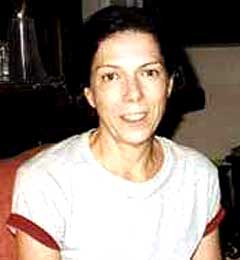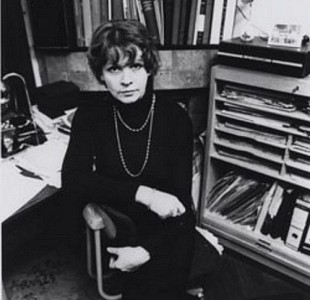Roland Kuit wrote:To Bud, after one coffee!
after a few days and lots of coffees ...
Roland Kuit wrote:
Approach to what?
Music and composition, even arranging ...
I´ve met a lot off really skilled composers/arrangers who did excellent work when writing for acoustic instruments but failed when dealing w/ electronic instruments, also included the ones dealing w/ the diatonic system,- lets say the electric guitar incl. it´s FX and amplification as well as synthesizers using standard tuning.
You mentioned:
"New ways in creating sound and creating
music (composition)"
"New technologies can bring more possibilities."
and ...
"We can talk about about how
electronic music evolves..."
There was the possibility to say "how music envolves .." because you were talking about "music (composition)" before, but now you used the term "electronic music" and to me, electronic music is somewhat different from music because what we normally call music comes w/ the traditions and the RULES from the past,- isn´t it ?
AND, when you say music,- it´s not automatically composed (and/or arranged) but can also be improvised.
Now, when we talk about "new ways creating sound",- to me that´s different than talking about "new ways creating music/composition".
Sound design and composition is 2 different tasks and there are existing different tools for these tasks too and if that weren´t the case, we did not have different terms for these tasks.
I agree on new technologies can bring more possibilities,- as a general statement.
On a individual basis, using of whatever tools, new or old, might shine or fail.
Roland Kuit wrote:
Not for you, that's fine.
I played Bach too, and others(still do).
Please
don´t take my statements/post too personal.
My intention was not being offensive.
I just only found it necessary to mention the diatonic system and listening habit of the masses of music consumers.
It does not mean I´m limited to that at all.
And when we go back in time, Bach was still popmusic in the past as is Miley Cyrus´ or Lady Gaga´s stuff today.
Roland Kuit wrote:
That is a matter of opinion.
Yes,- and a matter of intention too.
Talking about composition when using machines:
As a general rule,- you don´t need a machine to compose something.
I hope you agree on that.
Now, when someone programs a machine,- I try to keep it short here,- it can be he´s tinkering w/ that machine as long as there comes out an audible result he might call a composition and consequently music.
To me, that´s the way of trial and error where users fail 99% of the time until something usable comes up.
Not enough, when programming a machine which is some part of sound design for sure and even when someone does it with the intention of a sounddesigner, in these resulting textures there might come up structures the human brain recognizes as some kind of "theme" or "melody",- but it isn´t because it randomly build up and was not the intention of the programmer even he´s now happy w/ that result.
But, when someone is using that machine to demonstrate a idea he already imagined and realized in his head and follows a strategy to come to that target, that is (possibly) a composition using an electronic music tool.
It´s complex and my english is possibly not good enough the talk about that in depth for a longer time,- it would be much easier in german for me though.
Roland Kuit wrote:
Thanks, it's sounding nearly as music we all know. But these were a kind of 'finger exercises' before the disruptness comes in.
Unfortunately I cannot find any translation for the word disruptness ...
http://dict.leo.org/ende/index_de.html# ... wSingle=on
Roland Kuit wrote:
Wrong. A concert pianist uses as much calories as a road worker.

Maybe, but that wasn´t the point.
Instead it was:
When someone creates sound and/or composes using an electronic instrument like a modular synth,- hardware or software using a computer as the host,- it consumates electricity and when you use a pen, a sheet of paper and the piano,- it doesn´t.
A concert pianist is also not consequently a composer, just only a performer/interpreter when thinking about a solo performer or orchestral pianist in the classical music domain p.ex..
I feel free asking why guys like Oscar Peterson or Joey de Francesco were so fat and I rarely see fat roadworkers ...
Roland Kuit wrote:
I totally agree.
thx !
Roland Kuit wrote:
For and by whom?
creator and listener ...
Roland Kuit wrote:
My music is considered as music by my teachers.
Pioneers in their fields.
And nowadays as such by professors world wide.
That´s why I said please don´t take my post(s) too personal.
I´m pretty sure you work intentional, may it be sound design or composition.
In fact, I don´t care if it´s sound design or composition, probably you do.
If yes,- what´s so bad about being a (successful) sound designer over being a composer.
Is it so important to be a composer ?
Roland Kuit wrote:
If you like I can write more about composition.
Feel free doing that,- it might be very interesting.
Roland Kuit wrote:
There is much more than a diatonic system!
Yes, I know !

But not many people in the western world listen to that and/or understand it.
thank you for the link,- I´ll have a listen !
best
Bud






